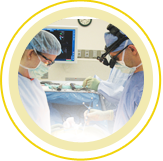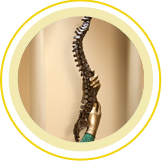Most of us can’t imagine anything more horrific than finally deciding to have back surgery and then having it fail to produce relief. You still have the same intolerable pain, and maybe it’s even worse. What a nightmare! If you or someone you know has been through this ordeal, let us give you some key facts about what to expect from revision spine surgery.
What Causes A Failed Spine Surgery?
You probably don’t want to hear excuses if your surgery failed to produce the results you and your doctor expected, but there are some explanations. First, no surgery is 100% guaranteed. There are always risks to any surgical procedure, and you accept those risks when you decide to proceed.
Sometimes the issue could be a result of a misdiagnosis, a surgical error, scar tissue, failure of implanted hardware, a disc becomes herniated again, or infection. These are just a few of the reasons a revision spine surgery might be needed.

Other times, the reasons can include other factors having nothing to do with your surgeon or the initial outcome of the surgery. If a patient smokes, and continues to smoke after spine surgery, this can lead to a failed surgery. Nicotine affects the ability of bones to heal.
Patients with certain clinical issues are at a higher risk of complications and failed surgeries:
- Those with diabetes
- Being obese
- Those with peripheral artery disease
- Those who have auto-immune diseases
Should You Move Ahead With Revision Surgery?
Before you need to face that decision, most doctors will suggest more conservative alternatives. It might seem counterintuitive but depending on the reason for the first failed surgery, less invasive treatments could help.
Before you do anything though, it is essential that you consult with Spine & Scoliosis Specialists who specializes in treating those who have undergone a failed surgery. Get a full analysis of what happened and discover what treatments short of surgery might be recommended.
Do Your Homework
Before you make the final decision to have revision spine surgery understand that most doctors recommend it as a last resort. Know the risks and benefits. Ask many questions and take time to consider the answers and how they align with your needs. Do you have options as to the type of surgery? Can you have it done in an ambulatory surgery center vs a hospital setting?
It could be that a revision spine surgery is necessary with the following factors:
- New or worsening pain especially from nerves causing weakness, shooting pain, and numbness
- Implants that have moved or become unstable
- A spinal infection
- Bowel or bladder dysfunction
These symptoms may mean you not only need a second surgery, but that it should be immediate.
On the other hand if you don’t have any of these reasons for immediate surgery, ask about the rates of success for your particular issue?
Some Good News
If you discover that your issue can be treated with a minimally invasive surgical intervention, your odds at success increase. You will have less complications and recovery will be faster. You should experience less pain, less need for medications, and less scarring.
Whichever type of surgery is recommended, be sure you have developed a good relationship with your surgeon and you trust his expertise and judgment. Don’t feel guilty about getting a second or third opinion. In the end, this is about your life and your ability to enjoy it without pain.
Contact Spine & Scoliosis Specialists at 336.333.6306, or request an appointment online, for a consultation if you are considering revision spine surgery.



